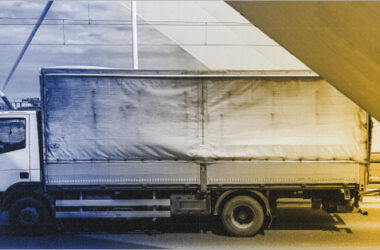Risk is an inevitable part of the world of business and manufacturing. Fire hazards, machinery failure, theft, or natural disasters- one single incident can put a company on its knees, resulting in huge financial damage. This is why appropriate industrial insurance coverage is not only a good idea, it is an absolute necessity.
The most common options among the numerous available insurance policies include the Industrial All Risk (IAR) Insurance and Fire Insurance. These are typically used by industrial units and commercial properties. These policies may appear to be similar to one another, but their areas, format, and advantages differ significantly.
In this blog, we will dissect the significant differences between Industrial All Risk Insurance and Fire Insurance policies. Our aim is to help you make a more informed decision for your business.
Let’s get going then!
Understanding the Basics of Industrial All Risk (IAR) Insurance
Industrial All Risk (IAR) Insurance is a comprehensive insurance policy, which is designed to cover the large industrial and manufacturing units against a broad array of risks. In contrast to a typical fire policy, which limits its protection to particular perils, IAR offers a form of blanket protection where almost all forms of physical losses or damages are covered, except where specifically excluded.
Key Features and Scope of an IAR Policy
- Broad Coverage: IAR policies include accidental physical loss or damage to property, which entails buildings, machinery, and plant, stock, and other assets.
- All-Risk Approach: The IAR policy covers both fire and non-fire hazards that include explosions, electrical or mechanical failures, burglary, natural calamities, and accidental damages.
- Two-Part Structure:
- Section I covers property damage and business interruption.
- Section II covers machinery breakdown and consequential loss.
- Customisable Add-Ons: Policies can include extensions such as debris removal, architect fees, temporary removal of stock, or coverage for machinery under repair.
- Business Interruption Cover: Compensation for loss of profit during downtime after an insured event, ensuring business continuity.
Who Should Opt for an IAR Policy?
IAR Insurance is best suited for large industrial enterprises, manufacturing units, and business parks with asset values typically above Rs. 100 crore. It’s ideal for industries like textiles, pharmaceuticals, steel, engineering, or chemicals, where multiple risks coexist within one premises.
Fire Insurance : The Basics
Fire Insurance is one of the oldest and most fundamental forms of property protection. It specifically covers loss or damage due to fire and allied perils, ensuring that businesses can recover the value of their damaged property.
What Does Fire Insurance Cover?
A Standard Fire and Special Perils (SFSP) Policy in India generally includes protection against:
- Fire, lightning, and explosion
- Riots, strikes, and malicious damage
- Storm, cyclone, flood, and inundation
- Impact damage from vehicles or aircraft
- Bursting of water tanks or pipelines
- Subsidence and landslides
Different Types of Fire Insurance Policies
The following are some available Fire Insurance policies that businesses can select:
- Specific Policy: Insures a particular property to a certain specified limit.
- Comprehensive Policy: Includes fire and other perils such as theft or explosion.
- Floating Policy: It is appropriate in a business that has assets in different locations.
- Valued Policy: Compensates a pre-specified sum upon loss.
Who Should Opt for Fire Insurance?
Fire Insurance covers small and medium-size businesses (SMEs), warehouses, stores, and office spaces. It is an affordable solution to companies who want to remain insured, mainly against fire related losses.
Industrial All Risk vs Fire Insurance : The Differences
Although both the policies serve the same objective of protecting assets, there exists major differences in their approach and coverage. Here are some of the most important differences:
1. Area of Coverage
Fire Insurance only covers fire related damages and its related perils. On the other hand, IAR Insurance is an all-risk cover that covers fire and other incidental damages such as machinery malfunctions, theft, and natural disasters.
2. Eligibility Criteria
IAR Insurance is typically not offered to a small scale industry with low value assets. Fire Insurance, however, is available to businesses both large and small.
3. Policy Structure
IAR Insurance operates as an all inclusive package- It covers property damage, machinery breakdown and business interruption in the same policy. Fire Insurance is independent and confined to certain perils.
4. Exclusions
Even though IAR is more inclusive of risks, it does not include war, nuclear risks, wear and tear, or intentional damage.Fire Insurance does not cover electrical breakdown, theft or accidental damage unless additional riders are purchased.
5. Settlement of Claims
Industrial all-risk policy claims may take longer due to their complexity and broader coverage scope. Fire Insurance claims tend to be easier and faster to handle.
6. Premium and Cost
IAR insurance attracts more premiums due to their comprehensive coverage, whereas Fire Insurance is comparatively cheaper and can suit smaller businesses.
A tabular comparison of the two is given below in order to get a clearer picture of the differences between them:
| Features | Industrial All Risk Insurance | Fire Insurance |
| Scope of Coverage | An Industrial all-risk policy covers all accidental physical loss or damage (except exclusions). | Covers only fire and allied perils. |
| Policy Type | Comprehensive, package-based policy. | It is a specific peril-based policy. |
| Property Covered | An Industrial all-risk policy covers buildings, plant, machinery, stock, and contents. | Similar, but only for fire-related damage. |
| Add-ons | Business interruption, machinery breakdown, theft, accidental damage. | Limited extensions like earthquakes or terrorism. |
| Premium Cost | Higher, due to more comprehensive protection. | Lower, suitable for basic coverage. |
| Target Users | Large industrial and manufacturing units. | SMEs, shops, warehouses, and offices. |
From the comparison, it is evident that an Industrial all-risk policy offers a wide area of coverage, which is a combination of various types of protection in a single policy. Instead, Fire Insurance has a modest but crucial coverage that is concentrated on fire and other associated risks.
Cost Implications and Premium Factors
The difference in the cost of Industrial All Risk and Fire Insurance may be significant. Premiums are determined using a number of factors such as nature of operations, value of assets and risk exposure
Factors that can Influence IAR Insurance Premiums
- Type of Industry: Premiums are increased in cases of high-risk industries such as chemicals or metals.
- Sum Insured: The sum insured is proportional to the total value of assets and machinery.
- Location: Factories located in flood prone or earthquake prone regions can attract higher premiums.
- Claims History: A business that claims frequently can be charged higher.
- Add-Ons Selected: Optional coverage such as business interruption or machinery breakdown adds to premium.
Factors that can Influence Fire Insurance Premiums
- Type of Property: Pricing is affected by the kind of construction material used, storage techniques, and the way the premises are occupied.
- Fire Protection Measures: You can reduce premiums by installing fire extinguishers, sprinklers or alarms.
- Coverage Extent: Adding earthquake or terrorism cover can increase the premium to a higher level.
Although Fire Insurance is less expensive, IAR Insurance offers value in terms of offering overall protection and reducing the financial exposure in various risk areas. The high premium is usually worth the level of financial protection provided to businesses with high capital investments.
Which is the Most Appropriate Option for Your Business?
The question of whether to use Industrial All Risk Insurance or Fire Insurance, depends, to a large extent, on the size of your business, value of your assets and the risk profile.
- Choose Fire Insurance if:
- You run a small or medium enterprise with limited assets.
- Your primary risk exposure is from fire or allied perils.
- You want a low-cost basic protection plan.
- Choose Industrial All Risk Insurance if:
- You operate a large manufacturing or industrial plant.
- You want a single, all-inclusive policy covering multiple risks.
- You need business interruption protection to avoid downtime losses.
- You handle high-value machinery or assets spread across multiple locations.
In short, Fire Insurance is the foundation, while Industrial All Risk Insurance is the fortress that covers every corner of your operations. Many growing businesses start with Fire Insurance and later upgrade to an IAR policy as their operations expand.
Advantages of Having the Right Industrial All-risk Policy Coverage
Whether you choose Industrial All Risk or Fire Insurance, having the right coverage offers undeniable advantages for your business:
1. Financial Protection Against Losses
Insurance ensures you don’t have to bear the entire financial burden of unexpected damages or disasters.
2. Business Continuity
With business interruption cover (especially in IAR), you can maintain operations or recover quickly after a loss event.
3. Risk Management and Confidence
Insurance strengthens your company’s risk management framework, allowing you to focus on growth rather than uncertainties.
4. Enhanced Credibility
Banks, investors, and partners prefer working with insured businesses, as it reflects financial prudence and reliability.
5. Compliance and Legal Assurance
Certain industries require insurance by law or under regulatory frameworks. Proper coverage ensures compliance and peace of mind.
The Bottomline:
Both Industrial All Risk Insurance and Fire Insurance are important in protecting industrial and business assets. The key lies in understanding your company’s size, operations, and risk appetite before deciding.
Fire Insurance offers sufficient and reasonable coverage when you have a small or medium-sized business and are mainly vulnerable to risks related to fire. But when you run a big industrial establishment having huge machinery, inventories, and real estate holdings, then you need to be covered comprehensively under an Industrial All Risk Insurance.
Choosing the right policy isn’t about cost alone. Rather, it’s a question of ensuring your future in business. Evaluate your risks, compare the terms of the policies and consult experts to make sure that your insurance coverage actually reflects your operational realities.
BimaKavach offers customisable Fire Insurance policies designed to protect your property, assets, and business from unexpected fire-related losses. Our team of seasoned experts simplifies the insurance process, helping you understand coverage options clearly and have a smooth, hassle-free experience all throughout.








